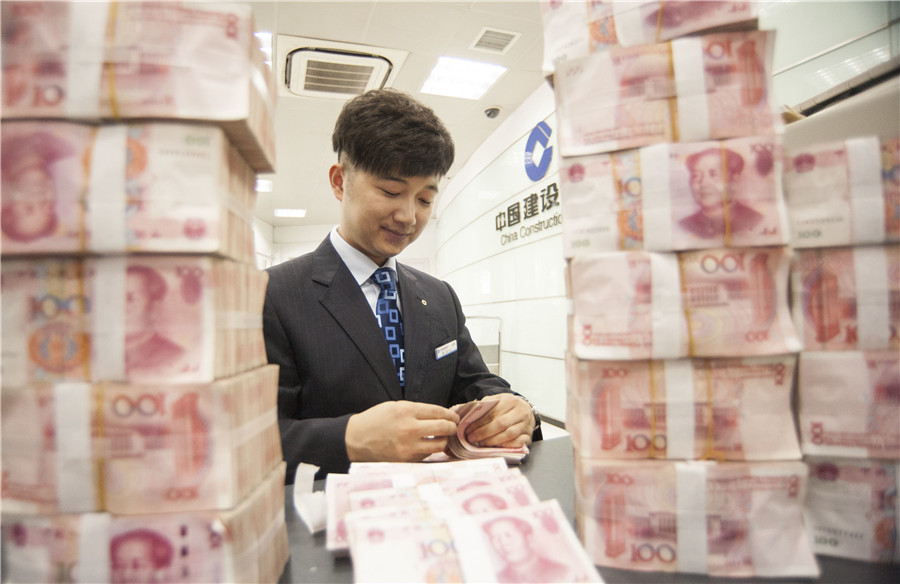Stocks fall as yuan drops to key low against USD
By BELINDA ROBINSON in New York | China Daily Global | Updated: 2019-08-06 22:46

China's currency fell below the key 7-per-dollar level on Monday for the first time since the 2008 financial crisis, rattling markets worldwide and sending US stocks to their biggest drop of the year.
The People's Bank of China (PBOC) said the yuan's fall was brought about by market conditions.
"Under the influence of factors including unilateralism, protectionist trade measures, and expectations of tariffs against China, the yuan has depreciated against the dollar today, breaking through the 7 yuan per dollar," the PBOC said in a statement on its website.
On Wall Street, the Dow Jones Industrial Average experienced its worst day of the year, closing down 767 points, or 2.9 percent, to 25,717.74. The blue-chip index had fallen as much as 961 points intraday.
"China's regulators were trying to buck the trend by keeping the yuan stable for a long time, but they are probably just going to let it follow market forces at this point instead of using precious dollar reserves to defend the yuan," Ann Lee, a specialist in China's economic relations and adjunct professor at New York University, told China Daily.
"So, letting it fall is not currency manipulation but the exact opposite," she said. "Trump is in fact the big currency manipulator by jarring markets with his haphazard foreign policy announcements."
The US government declared Monday that China is manipulating its currency and will engage with the International Monetary Fund to "eliminate the unfair competitive advantage" for Beijing, US Treasury Secretary Steven Mnuchin said in a statement. The US last accused China of currency manipulation in 1994.
The 1.4 percent drop in the yuan comes days after US President Donald Trump announced he would impose 10 percent tariffs on $300 billion of Chinese imports starting Sept 1.
The news knocked the dollar sharply lower and bolstered gold.
The onshore yuan finished the domestic session at 7.0352 per US dollar, a drop of 1.33 percent. The MSCI Asia Pacific Index dropped 2 percent. Hong Kong's Hang Seng closed down 2.9 percent.
In the US, the Nasdaq Composite dropped 278.03 points, or 3.47 percent, to 7,726.04. The S&P 500 was down 87.31 points, or 3.7 percent to 2,844.34.
Shares of S&P 500 technology companies, which are exposed to Chinese markets, dropped 4.1 percent. US tech stocks, including Apple, Intel and Microsoft, also were hammered.
In London, the FTSE 100 finished 2.5 percent lower; Germany's DAX closed 1.8 percent lower, and France's CAC 40 closed down 2.2 percent.
"Market forces drove the yuan down, thanks to Trump's latest tariff threat," Gary Hufbauer, an economist at the Peterson Institute in Washington, told China Daily.
He said China's action was not "manipulation" but rather a decision by the PBOC not to intervene.
"Nevertheless, this is highly destabilizing to world financial markets, particularly in Asia," Hufbauer said. "The result will be high volatility in exchange rates until key central bankers and finance ministers coordinate a response to calm the markets."
Reuters contributed to this story.
























